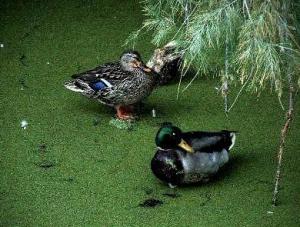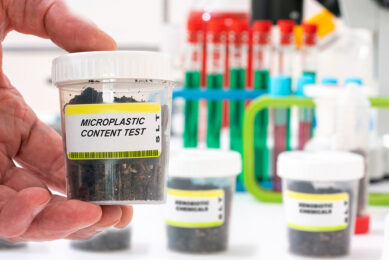Ensiling duckweed gives better quality

Converting duckweed to silage is a cheap and sustainable alternative to drying for preserving the fodder as was shown by Wageningen Livestock Research in The Netherlands.
Ensiling, however, will only succeed with the use of additives. Molasses appeared to be a good alternative and is relatively cheap and easy to use.
Because of the weak tissue structure of duckweed the usual methods for ensiling are not applicable. Pressing the duck weed only gave a limited increase in dry matter percentage. Use of air-tight containers seem to give a good ensiling result and prevents losses.
Without an ensiling preservative no acceptable end result could be achieved. Only sugar rich additives, such as molasses or sugar beet pulp gave good to very good preservation results.
Duckweed contains a lot of protein and is easy digestible and from that point of view is an interesting alternative for cattle feed.
Research in 2007 already showed that compressed duckweed that harvested from canals were a valuable feed source for cattle and easy to use.
As a cheaper alternative to pelleting this time it was tried to see if duckweed could be fermented by ensiling. This research has made an important contribution to the further development of methods for processing duckweed from surface water into animal feed.











